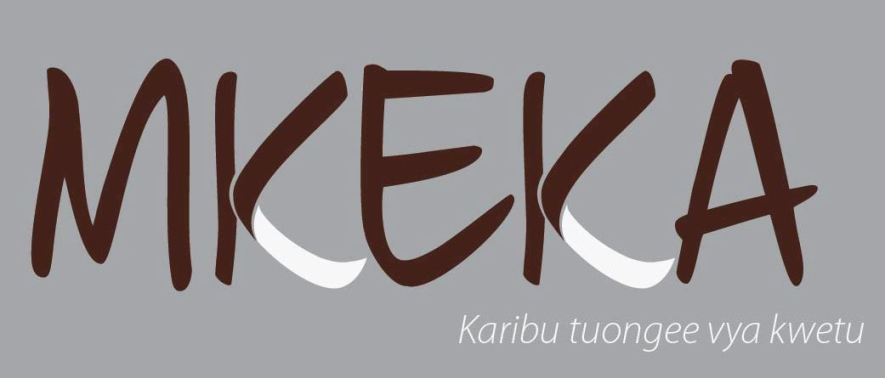By +Caroline Anande Uliwa
 |
| Photo courtesy of Mwende Katwiwa's website |
“With a name like Mwende Kalondu Katwiwa, the jokes will come, do not envy your brother David or blame your mother Lucy and the way their names roll smooth, off foreign tongues is proof that colonisation and assimilation go hand in hand.” - Lessons on being an African immigrant in America-Becoming Black by Mwende Katwiwa a.k.a FreeQuency
Stripping the layers of what allows minorities like African American women, continue to be the poverty stricken, disease prone part of the population. FreeQuency translates the divides on the ground in a ‘post racial’ society and through her roots in Kenya. Licks the reality of what it means to be free in ‘post colonial’, Africa through this her debut anthology.
I stumbled into this author last month, when she was visiting Tanzania to feature as a workshop leader & performing artist, inside a youth poetry festival called ‘Paza Sauti’. Before climbing on stage to perform some of the poems in this book.
She gave us a short introduction to this work. Explaining that growing up in America as an Immigrant she found out quickly. That her identity of a Kamba, Kikuyu, Kenyan ,meant little as now she was just ‘black’. Her journey in understanding this new ‘identity’ is what she chronicles so poignantly in this book.
She gave us a short introduction to this work. Explaining that growing up in America as an Immigrant she found out quickly. That her identity of a Kamba, Kikuyu, Kenyan ,meant little as now she was just ‘black’. Her journey in understanding this new ‘identity’ is what she chronicles so poignantly in this book.
“Black father tells daughter that she is now Black…but Blackness is something her child mind is not yet able to understand…thinks to how the most evil of villains are the ones who dress in black who shroud themselves in the perceived terror of its darkness…daughter decides she does not want to become Black. She has yet to realise that Black father never gave her a choice, that Black father was never given a choice that he stumbled upon this newfound Blackness the hard way…” My Father’s lesson-Becoming Black
The book smells of activism peeling curtains of what we’re ready to talk about, like the effects of the heroines we leave for our children. The ‘strong African woman’ adage, propagating the woman who doesn’t complain, cooks for the family meal in meal out, tends the land, raises the children, slowly leaving her education, her dreams, her voice behind.
 |
| When Mwende visited Dar es Salaam here performing inside CDEA for the Paza Sauti Festival in Nov'17-Photo by Salim Ally Malimbika |
The poem in this book which Mwende dedicates to Trayvon Martin titled ‘The seven deadly American sins” is perhaps the climax of it. This poem also featured in "Trayvon Martin, Race & American Justice: Writing Wrong”; a collection of critical writing offered for undergraduate and graduate classes across universities. Reveals the tensions of ‘white privilege’ befalling African Americans in piercing lines. “I wonder if his grave bears his name or…if they replaced ‘rest in peace’ with ‘no justice no peace’”-7 deadly American sins-Becoming Black
 |
| Photo courtesy of Mwende Katwiwa website |
Mwende Katwiwa is an activist, a writer, an Honors graduate of Tulane University with a B.A in Political Economy, International Perspectives and African & African Diaspora studies. A performer, she is a 2017 TEDWomen speaker, ranked 3rd at the 2015 Individual World Poetry Slam. She is currently working at ‘Women With A Vision’ an NGO advocating for ‘reproductive justice’, LGBTQ advocacy , HIV+ Women’s advocacy, Sex worker rights and Drug Policy reform.
She herself has worked inside the #BlackLivesMatter campaign and her poetry has been featured in. Upworthy, OkayAfrica, TEDx, the New York Times, For Harriet, Teen Vogue, Huffington Post, Everyday Feminism, & other outlets; you can get a copy of this book through her website www.FreeQuencySpeaks.com. The book was self published in 2015 with Cover art by Sol Galeano, based on original design by Devin Reynolds, Layout by Geoff Munsterman, it’s in its second edition.
This article was first published in The East African Newspaper http://www.theeastafrican.co.ke/magazine/Book-Review-Becoming-Black-Mwende-Katwiwa/434746-4211774-p3ijki/index.htmlhttp://www.theeastafrican.co.ke/magazine/Book-Review-Becoming-Black-Mwende-Katwiwa/434746-4211774-p3ijki/index.html


No comments:
Post a Comment